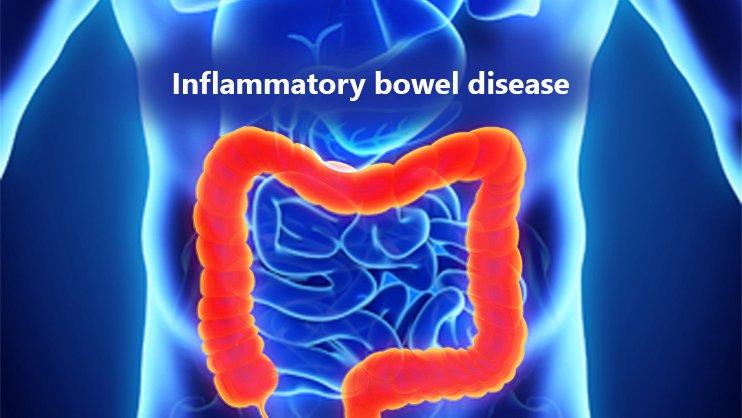Understanding Inflammatory Bowel Disease

Inflammatory bowel disease (IBD) is a group of inflammatory conditions of the colon and small intestine. The two main types of IBD are ulcerative colitis and Crohn's disease. While the exact causes of IBD are unknown, it is believed to result from an abnormal response of the immune system to environmental triggers in genetically susceptible individuals. IBD can cause chronic inflammation and damage to the digestive tract.
What is Inflammatory Bowel Disease?
As mentioned earlier, inflammatory bowel disease refers broadly to conditions of chronic inflammation within the digestive tract. The lining of the intestines becomes swollen or inflamed, which can lead to abdominal pain, severe diarrhea, fatigue and weight loss. There are two main types of IBD - ulcerative colitis and Crohn's disease. These two conditions are similar in some ways but also have important differences.
Ulcerative Colitis
Ulcerative colitis causes long-lasting Inflammatory Bowel Disease and ulcers in the innermost lining of the large intestine (colon) and rectum. The inflammation always begins at the rectum and extends a variable distance up the colon. Ulcerative colitis may be associated with bloody diarrhea, abdominal discomfort and a sense of urgency to have a bowel movement. The symptoms of ulcerative colitis can vary in severity from mild to severe. An important distinction of ulcerative colitis from Crohn's disease is that it only affects the large intestine.
Crohn's Disease
Unlike ulcerative colitis, Crohn's disease can impact any part of the gastrointestinal tract from mouth to anus. It frequently causes inflammation of the end of the small intestine (terminal ileum). Common symptoms of Crohn's disease include abdominal pain and cramping, diarrhea, fever, weight loss and fatigue. Crohn's disease causes patches of inflammation which can alternate between healthy and inflamed areas of the bowel. This discontinuous pattern of inflammation helps differentiate Crohn's from ulcerative colitis.
Causes and Risk Factors
While the specific triggers that cause IBD are unknown, it is believed to develop from a combination of genetic, immunological and environmental factors. Some of the risk factors associated with developing IBD include:
- Genetics: Individuals who have a family member with IBD are at higher risk of developing it themselves. Certain genetic mutations can predispose to abnormal immune responses.
- Smoking: Smoking cigarettes significantly increases the risk and severity of Crohn's disease. It also worsens the course of ulcerative colitis.
- Appendectomy: Removal of the appendix at a younger age may reduce the risk of developing ulcerative colitis later in life.
- Hygiene: Exposure to fewer childhood infections may play a role. Lower socioeconomic status is linked to a lower risk perhaps due to more infections.
- Diet: Diets high in fat/red meat or low in fiber have been implicated as potential risk factors for Flare Ups.
While no single cause has been identified, IBD arises due to a complex interplay between genetic and environmental factors that trigger an inappropriate immune response in the intestines over time.
Diagnosis and Evaluation
There is no single test that can definitively diagnose IBD. Doctors rely on a combination of factors including medical history, physical exam, lab tests, endoscopy, imaging and biopsy of intestinal tissues. During endoscopy, a long flexible tube with a camera is inserted into the colon or small intestine to directly visualize inflammation, ulcers and other abnormalities. Tissue samples analyzed under a microscope can differentiate between the microscopic features of ulcerative colitis vs Crohn's disease. Other tests like fecal calprotectin, C-reactive protein and chest x-ray may also provide clues to diagnosis and severity. A thorough evaluation is necessary to accurately diagnose IBD and differentiate it from other digestive disorders.
Treatment and Management
There is currently no cure for IBD, but treatments can help induce and maintain remission of symptoms. The main goals of treatment are to reduce inflammation, relieve symptoms, and prevent long-term complications. Treatment approaches depend on the type and severity of IBD as well as individual patient factors.
Common therapies for IBD include:
- Medications: Aminosalicylates, corticosteroids, immunosuppressants, biologics are commonly used drugs that suppress inflammation. Antibiotics may benefit associated conditions like fistulas.
- Diet: An exclusion diet tailored to individual food triggers may help induce remission. A balanced diet high in fiber, proteins and calories is important to promote healing.
- Surgery: For cases that are refractory to medical management, surgical removal of diseased bowel segments may be necessary. This includes colectomy for severe ulcerative colitis or resection of strictured or diseased areas of bowel in Crohn's.
- Lifestyle Changes: Quitting smoking, managing stress, physical activity as tolerated. These adjunctive measures can help symptoms.
With a customized treatment regimen tailored by a gastroenterologist, IBD can often be controlled and patients can lead active lives. Ongoing management is key to prevent long-term complications.
inflammatory bowel disease is a chronic condition of the gastrointestinal tract that remains difficult to treat due to our limited understanding of its pathogenesis. IBD has a significant impact on quality of life but current medical and surgical therapies can induce and maintain remission in most patients when optimized based on disease characteristics. Continued research holds promise for improved targeted treatments and ultimately a cure for IBD in future.
Get More Insights On This Topic: Inflammatory Bowel Disease
Explore More Article: Digital Trust Market
- Art
- Causes
- Crafts
- Dance
- Drinks
- Film
- Fitness
- Food
- Games
- Gardening
- Health
- Home
- Literature
- Music
- Networking
- Other
- Party
- Religion
- Shopping
- Sports
- Theater
- Wellness
- IT, Cloud, Software and Technology


